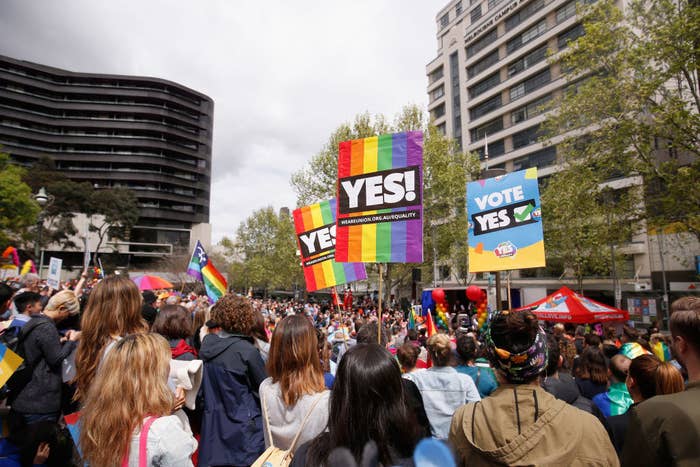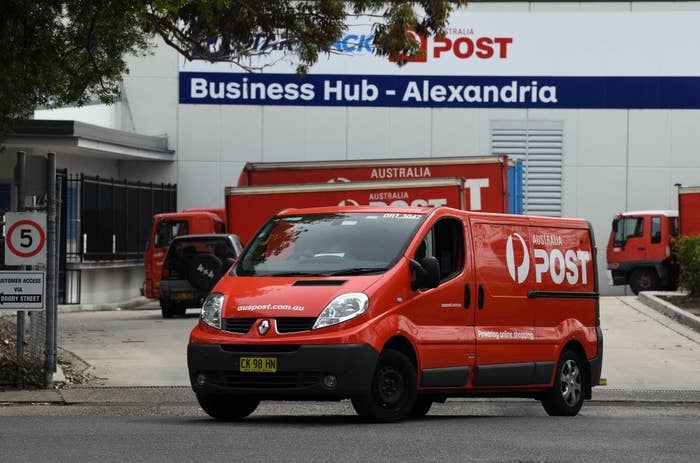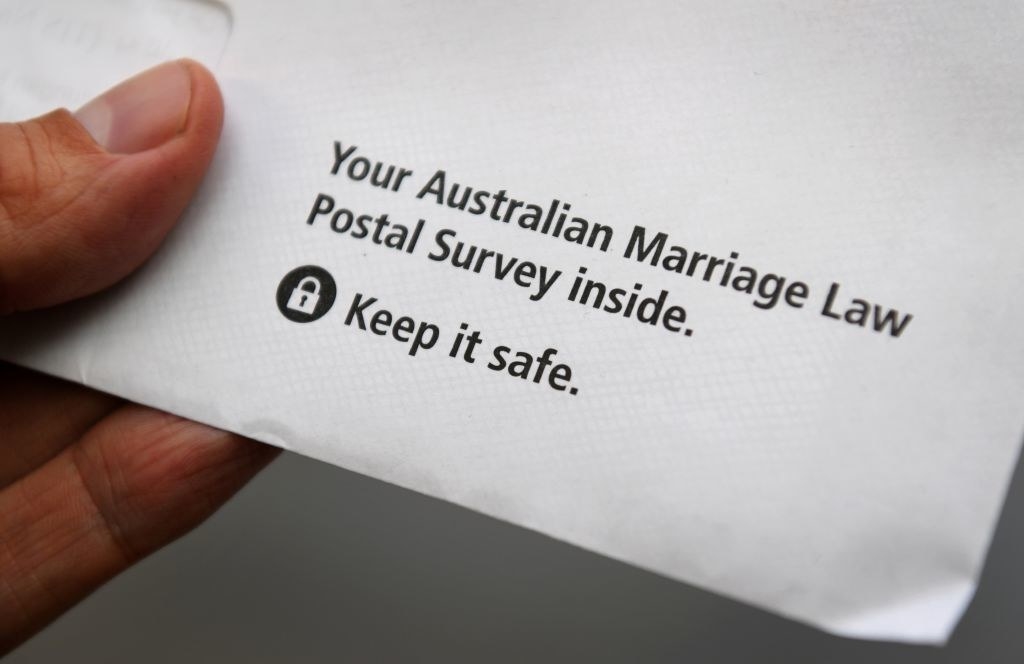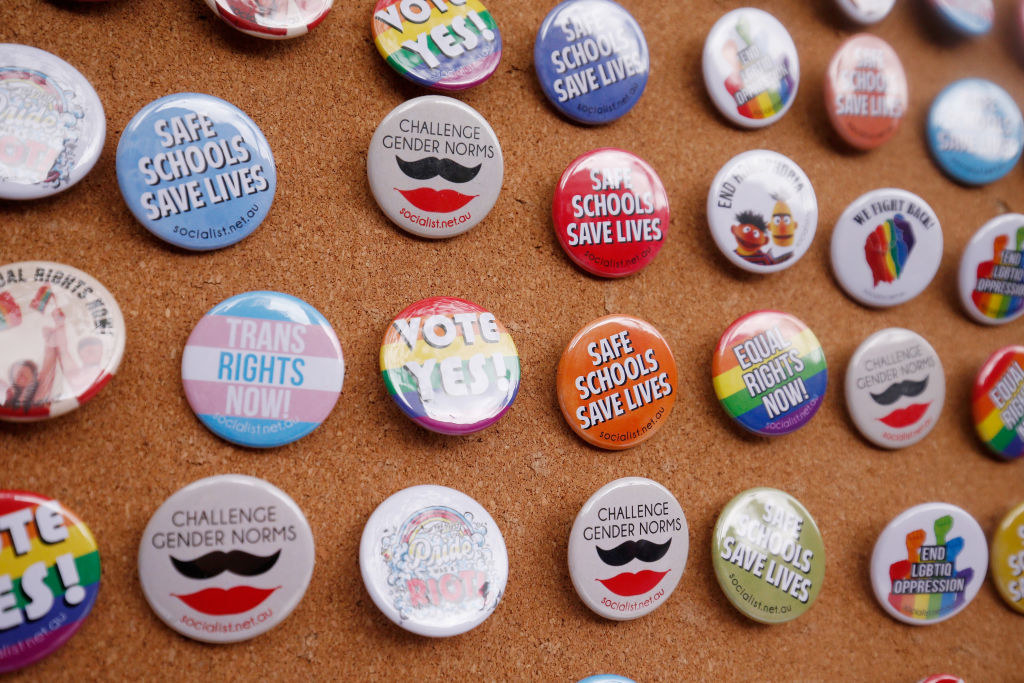
On Tuesday, the Australian Bureau of Statistics (ABS) announced that over 60% of eligible Australians have cast a vote in the national survey on same-sex marriage.
But there is a group of Australians, one which is ordinarily eligible to vote, that has been barred from participating in the postal survey — consisting of those who turn 18 from August 25 to November 7.
In a regular election you can apply to be on the electoral roll before you actually turn 18, so if your birthday falls after the rolls close, you can still vote, as long as you're 18 by election day.
But in the postal survey, anyone who wasn't 18 by August 24 – the deadline imposed by the government – misses out.
Year 12 student Oscar Galea from Mackay, Queensland, will turn 18 at the end of October. He told BuzzFeed News that watching the postal survey play out has left him feeling "cut out and excluded" from a process that is all about his future.
"I’m disappointed that I missed out on voting for something that will really affect my future: whether or not I will be allowed to marry the person I love," he said.
Galea said there hasn't been many public displays of support for marriage equality in his "conservative" hometown, but that he's been speaking out when the issue is raised in conversation.
"I’ve been very vocal in my views, because it’s something that can’t be taken lightly. At the end of the day, it is something that will impact a very, very, very large percentage of the Australian population."

Several other teenagers interviewed by BuzzFeed News also said they were disappointed at missing out on a vote.
Musical theatre student Liz Ball, from Moreton Bay, Queensland, turned 18 in mid-September. She told BuzzFeed News she felt like several elements of the survey excluded younger people, including the age cut-off and the fact it is run through the post.
"This definitely affects the youth, who are the future of Australia ... I’m actually quite disgusted that the way this vote was formed was to obviously cater as little to the younger generation as possible," she said.
"All I can do is watch, even though I can legally participate [in a regular election]."
Canberra teenager Reuben Pash also turned 18 in mid-September. He said the "informal" nature of the postal survey made the decision to exclude some 18-year-olds from voting seem arbitrary.
"It felt like it made a bit more sense that if you were 18 during the survey it would be OK [to vote] — especially given it's just a postal survey," he said.
"It's an issue that a lot of people my age feel quite strongly about, and I can't do anything even though I'm on the electoral roll."
Greens senator Janet Rice raised the issue in parliament shortly after the postal survey was announced in August, saying the decision would exclude tens of thousands of teenagers who should be eligible.
"By my calculations, using the ABS's own census data, this means that over 50,000 18-year-olds who turn 18 between August 24 and November 7 will not be able to vote," she said.
Acting special minister of state Mathias Cormann responded: "In any exercise involving the electoral roll there is a deadline after which no further updates can be made to the roll."
The Greens also attempted to amend the survey legislation to extend the right to participate to 16- and 17-year-olds — a proposal that failed after it was opposed by the government and Labor.

All the teenagers BuzzFeed News spoke to said they would be voting "yes". Data from the longitudinal Household, Income and Labour Dynamics in Australia survey, as well as numerous polls, suggests support for marriage equality is significantly higher among young people than any other age demographic.
BuzzFeed News contacted the Coalition for Marriage to seek assistance in locating a 17- or 18-year-old "no" voter who had missed out on participating, but it did not respond.
However, there were lots of young people at a Coalition for Marriage event in Fairfield, NSW, on Sunday afternoon. Several teenagers — as well as young children decked out in "It's OK to vote No" badges — gathered with parents and friends at the event, which was aimed at members of Australia's conservative Eastern Churches.
The age cut-off is particularly frustrating for LGBT teenagers, who see the survey as a decision being made about them, without them.
Benjamin Springall, a transgender teenager from Radcliffe, Queensland, turned 18 in early October. He told BuzzFeed News he had been excited about the chance to vote to ensure he would have the right to marry in the future
Currently, transgender Australians may or may not be barred from marrying their partner depending on their legal sex and the sex of their spouse.
In most states and territories, married transgender people are forced to get a divorce before they can legally change the sex on their birth certificate — a process which the UN declared is in contravention of international human rights law earlier this year.
"I wanted to have a say so I can get married to anyone," Springall said. "The votes don't actually get counted 'til November, and yet I'm still not allowed to vote even though I turn 18 before then."

Lauren Cripps, from Kingsford, NSW, turns 18 on the very last day of the postal survey, November 7.
She said the government's decision to set the cut-off at August 24 was a "big loss".
"There is every opportunity present to send survey forms out to voters who turn 18 during the time the survey takes place," she said. "It's incredibly frustrating to be sitting here wanting to have my say and yet have missed out by a mere month and a half."
As a young LGBT person, Cripps counts herself lucky to be surrounded by accepting friends and family, and to attend an accepting school. She believes a "yes" vote in the survey would be a positive change.
"[It would] spread a message of hope to not only the youth of Australia, but adults' generations above mine who have been struggling with this debate for decades."


